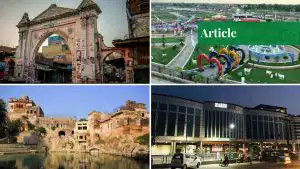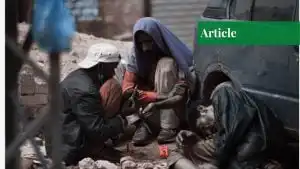Introduction
Women’s shelters have been constructed in Pakistan to provide a safe place for women who have experienced physical, mental, psychological, and financial abuse. Many women are living in these shelters so that they can escape these violent acts forever, as these shelters provide a roof over their heads. Some shelters are constructed by the state, such as Dar-ul-Amans, and some are constructed privately. Several shelters are run by different NGOs.
The pivotal aim of these shelters is to provide basic life necessities to those in need. Moreover, these shelters provide psychological support to women suffering from mental trauma so that they can heal. These shelters give women vocational training to make them independent. Hence, these shelters not only provide safe and secure places for women but also teach them how to survive on their own.
Pakistan has constructed women’s shelters to help those in need, serving as safe spaces. Pakistan only has a few shelters dedicated to women, and some of them are mentioned below.
Panah
Panah is present in Karachi and it helps those women suffering from domestic violence. They assist women in several ways. They help them recover from their past trauma and also aid them in exercising their basic human rights via Panah’s legal aid. Moreover, they have psychiatrists who help women come out from their trauma and provide them with mental health services.
Vocational training, such as beautician training, is given to women in Panah so that they can be independent. On the other hand, they are also taught basic English courses. The facility of providing transitional homes to women was launched in 2018. Hence, Panah serves as a home for distressed women.
Dastak
In 1990, Dastak was founded in Lahore by Hina Jalani, a human rights activist, to provide shelter for women in need. Along with rehabilitation services, legal aid is also given to women. Initially, Dastak was a legal aid unit but later on, it turned into a safe shelter. Since 2010, it has trained women in different important skills needed to survive. Every year, 300 women are trained by Dastak. Up till now, it has provided services to more than 8,000 women in both Pakistan and abroad. Furthermore, the organization has arranged programs to raise awareness about vital issues, such as domestic violence and abusive acts.
Women Shelter Organization
The Women Shelter Organization was founded by Bishop Johan Joseph in 1985. However, Razia Joseph brought his ideas into reality in 1987. The prime aim of this organization is to change the lives of women for the better. It aims to achieve this by making them self-sufficient and independent so that they can earn for themselves and transform their lives in a better way.
In this institution, women are not only given shelter but they are also given vocational training. They are taught various courses—computer courses, health courses, etc. Pakistani women face a lot of injustices, including maltreatment, prejudice, and discrimination in every field of their lives, so this organization arranges awareness seminars to make sure that they are aware of their basic human rights. Thus, this organization is one of the most significant shelters for women in Faisalabad.
Dar-ul-Aman
Dar-ul-Aman are shelter homes for women and they are established throughout the country to provide safe havens for women suffering from domestic abuse. They are present in all 36 districts of Punjab and are made by the Social Welfare Department. Their establishment eased the sufferings of many women who were victims of domestic violence.
There are numerous ways in which women can get entry into the Dar-ul-Amans, such as through legitimate proceedings, voluntary campaigns, and last but not least, the media. On the other hand, women can also get their entry on their own. Every Dar-ul-Aman caters to 30 to 50 women and provides them with basic facilities—for instance, recreational activities, vocational teaching, education, and health care services. In addition, psychological support is also given to them so that they can come out of their trauma. Hence, the facility of legal aid is available at these Dar-ul-Amans.
Shortcomings of Women’s Shelters
The National Commission for Human Rights and UN Women conducted extensive research on women’s shelters in Pakistan and they identified various gaps in these shelters. In the research report titled “More than Shelters, Needs Assessment of Dar-ul-Aman and Shelters in Pakistan,” the organizations identified numerous gaps in policies and implementation mechanisms. One of the most prevalent shortcomings was that the living conditions in these safe havens were inadequate and unsatisfactory, as there were no separate rooms for the visitors.
In addition, there were no proper internet facilities. The counseling facilities were present in some of the shelters but there were no separate counseling rooms, so it became difficult for the women to express their sufferings and problems openly. The report added that there was no proper system for women in Pakistan to register their complaints and rehabilitation centers were not introduced to the women.
Recommendations
The government should take several measures to improve the legal system so that women can easily report crimes and abuse. Fundings provided to these organizations should be increased, which will help these shelters enhance their infrastructure, ultimately improving women’s living standards. Public awareness campaigns and seminars should be arranged to raise awareness among women. Women should be made aware that it is not wrong to leave toxic homes and partners. Women should be encouraged to seek help when required. Essential training should be given to the staff of shelter homes on how to deal with victims of sexual violence, domestic abuse, etc. Therefore, capacity-building mechanisms should be improved.
Conclusion
In Pakistan, numerous shelters have been constructed for women in different cities to protect them from domestic violence. These shelters provide several facilities to women in dire need. Although these shelters are playing a role in improving women’s lives, they have several shortcomings as well. These gaps should be filled to improve their living standards. Thus, in this way, a more secure place could be created for women where they can live in peace.
If you want to submit your articles and/or research papers, please check the Submissions page.
The views and opinions expressed in this article/paper are the author’s own and do not necessarily reflect the editorial position of Paradigm Shift.
Ms. Amina Iqbal is studying international relations at Kinnaird College for Women University, Lahore.






